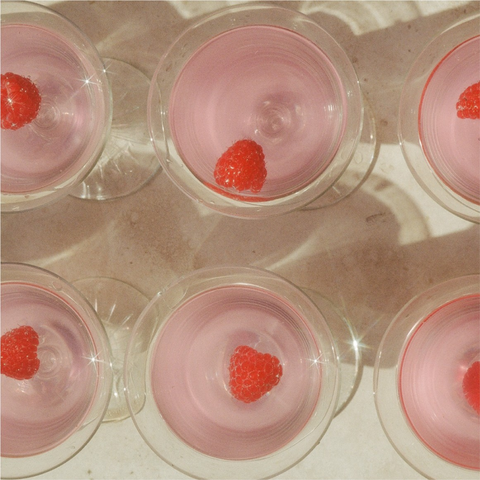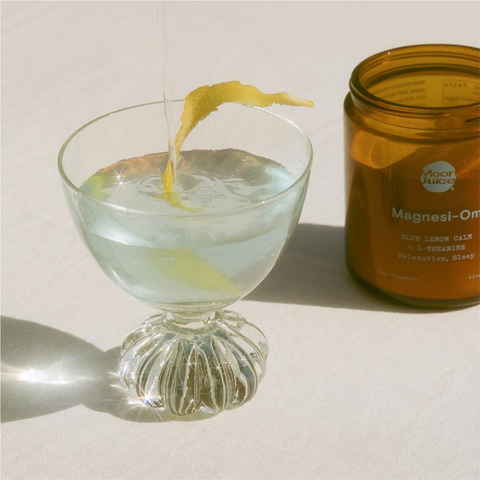Ever wonder why babies have such soft, supple, and squeezable skin? They have an abundance of collagen, providing that juicy texture, bounce, and thickness. As an adult, it’s clear that your skin isn’t quite like what it used to be years ago — and a lack of collagen is one part of the larger puzzle as to why that is. While a gradual loss of collagen is normal, it’s possible to protect and preserve your natural collagen content and keep a full-blown deficiency at bay.
Keep reading to see why collagen is important for skin health and discover the key signs of a collagen deficiency. Plus: learn how to take action via diet, lifestyle, topicals, and supplements to improve low collagen levels.
What Is Collagen?
Collagen is the main building block of not only your skin but also your muscles, bones, tendons, ligaments, and other connective tissues. In addition, it’s located in your organs, gut lining, and blood vessels. Collagen is the most abundant type of protein in the body, comprising around 30% of its total protein content. It consists of amino acids, the most prevalent being Proline, Glycine, and Hydroxyproline.
Among many things, collagen protein supports the skin’s ability to stay bouncy, plump, and hydrated. More specifically, collagen promotes the integrity and health of the skin by:
- Helping new cells grow by aiding the formation of fibroblasts in the dermis
- Helping to replace dead skin cells
- Providing structure, strength, and skin elasticity.
To maintain supple, healthy skin as the years go by, you’ll want to prioritize collagen by preserving your natural collagen and stimulating production of it. A proactive approach to collagen supplementation can bolster your defenses against deficiency and prevent further collagen loss.
What Causes a Collagen Deficiency?
It’s not possible to measure how much collagen your body has at a given time. However, there are a few telltale signs of collagen deficiency (which you’ll uncover at length in the next section).
At any rate, your body can become deficient in collagen for a few reasons. Collagen production naturally slows down over time, typically starting in your mid-20s. A handful of lifestyle and dietary factors can accelerate the process. The good news is you can get ahead of it by making a few small tweaks that won’t only improve your skin and collagen levels but also your overall health and well-being.
Stress
Stress won’t do your mind, body, or skin any favors. As a review in the journal Brain, Behavior, and Immunity explains, stress can affect the integrity of collagen in the skin through glucocorticoid-mediated processes that change its synthesis and spur degradation. Glucocorticoids are also involved in immune system processes, and your immune health can influence how healthy your skin is. Exercise and following a healthy diet are both natural remedies for stress relief and should be practiced regularly.
Smoking
Let’s not beat around the bush: Smoking is a no-go for your skin health and overall well-being alike, full stop. A lot of research studies show that smoking is linked to countless dermatological issues and concerns, including but not limited to:
- Accelerated skin aging
- Poor wound healing
- Breakouts
- Psoriasis
- Hair loss
One review in the Journal of Dermatological Science discusses the link between smoking and accelerated skin aging — namely, as it concerns collagen — with the following:
- Tobacco smoke extract impairs collagen production and incites a process that degrades matrix proteins.
- Smoking increases matrix metalloproteinases (MMP), resulting in the deterioration of collagen and elastin fibers.
- Smoking increases reactive oxygen species (ROS), which aid the induction of MMP and thus degrade collagen.
Another study published in the British Journal of Dermatology investigated (i.e., internal) collagen synthesis and degradation in the skin of smokers and non-smokers in northern Finland. Smokers had a lower synthesis rate of collagen type I (at 18 percent) and type III (at 22 percent). Moreover, levels of collagen-degrading MMP-8 levels were 100 percent higher in the group of smokers.
Sun Exposure
Small amounts of safe sun exposure are healthy and recommended to maintain healthy vitamin D levels (with an emphasis on the words small and safe). The sunshine Vitamin supports everything from your mood and immune function to hormonal health. But too much exposure to UV rays spell trouble for the sake of your skin, as damage accumulates day by day and year over year. Excess exposure to UV light — not only via the sun’s rays but also other sources of UV light like tanning beds and large-scale lighting systems — can cause different forms of skin damage, including collagen deficiency.
Per a 2022 entry in the journal Molecules, UV light instigates oxidative stress and revs up the accumulation of ROS. This process results in collagen degradation and other signs of photodamage, like wrinkles and dark spots.
Sugar
Added sugar in the diet — via sodas, sweet treats, and the like — can also contribute to collagen deficiency. That’s because sugar can spur the formation of a group of compounds called advanced glycation end products (AGEs). A high accumulation of AGEs in tissues contributes to accelerated skin aging.
Studies conducted by the Duer Research Group at the University of Cambridge showed that AGEs can stiffen connective tissue, affect how the surface of collagen fibrils appear, and may also change the behavior of cells. Moreover, sugar causes cross-linking of collagen, leading to the loss of skin elasticity.
Signs & Symptoms of Collagen Deficiency
Collagen deficiency symptoms are usually easy to spot. In terms of your skin (as well as your hair and nails), the most common signs of low collagen levels include:
- Fine lines
- Wrinkles
- Loss of elasticity
- Dry skin
- Dark circles
- Sagging skin
- Cellulite
- Thinning skin
- Brittle hair
- Weak nails
You’ll likely experience a few of the signs of a collagen deficiency. You can think of collagen almost as a catch-all since it’s crucial for hydration, thickness, elasticity, and strength. For instance, low collagen can spur the development of fine lines and wrinkles, but also cellulite since a lack of collagen permits fat to more easily access the skin and result in a dimpled appearance. In addition, the amino acid Proline is abundant in collagen and Keratin (a vital type of protein for healthy hair and nails) alike. A lack of Proline, in part due to collagen loss, may be linked to damaged hair and weaker nails. Moreover, a 2017 study in the Journal of Cosmetic Dermatology shows that an increase in collagen can increase nail growth and reduce the frequency of breakage. Individuals commonly take collagen or biotin to help with these symptoms, as a deficiency is sometimes the source of these issues.
What to Do If You Have a Collagen Deficiency
Enrich Your Diet with Antioxidants
Antioxidants are crucial to staving off free radical damage, a major cause of accelerated aging. A food-first approach to loading up on antioxidants is a safe bet for your skin and overall health.
A few micronutrients with antioxidant prowess worth prioritizing in the diet include vitamin C, vitamin E, carotenoids, and copper. In particular, vitamin C is a cofactor for lysyl and prolyl hydroxylase. These provide stability for collagen’s triple helix structure. The famed antioxidant can also increase the bioavailability of selenium, a mineral that has positive associations with collagen status. Some antioxidant-rich foods include:
- Berries
- Broccoli
- Green leafy vegetables like kale and spinach
- Tomatoes
- Sweet potatoes
Consider adding some of these to your diet along with collagen-rich foods.
Apply Collagen-Protecting Skin Care Products
A review in the journal Dermato-Endocrinology stated that a variety of antioxidants — including vitamins, polyphenols, and flavonoids — can help reduce collagen degradation by reducing the amount of free radicals in connective tissue. Cell regulators — which include the likes of retinol, peptides, and growth factors — can also support your quest to halt accelerated skin aging. These topicals can have a positive influence on collagen metabolism and aid collagen production.
Essential fatty acids and Schisandra also boast antioxidant capabilities. Among many benefits, Essential fatty acids can seal in moisture and help improve skin’s natural barrier function. Schisandra is also known to scavenge free radicals, thus helping to promote the skin’s natural collagen. Opt for a Collagen-protecting dewy moisturizer like Cosmic Cream™, which features these powerhouse ingredients for dewy decadence that moisturizes and replenishes.
Take a Supplement for Collagen Deficiency
To keep a collagen deficiency at bay, you can always rely on collagen supplements. Collagen supplementation is one of the easiest ways to get your daily collagen intake. While you can take either liquid or powder collagen, both forms help to replenish the body and bring collagen levels back to a healthy level.
Collagen Protect®, our vegan collagen alternative, contains 3 vegan ingredients aimed at preserving your natural collagen and supporting the production of it:
- High molecular weight Hyaluronic Acid, which is clinically shown to support Collagen synthesis and reduce the appearance of fine lines*
- Silver Ear Mushroom, which supports your skin barrier and promotes deep skin hydration*
- Tocos, which contains essential fatty and amino acids to help protect collagen and prevent visible signs of aging*
Wondering how Collagen Protect® differs from non-vegan collagen supplements? When comparing animal collagen vs. vegan collagen, animal and marine collagen peptides won’t protect your innate supply of the protein. Meanwhile, Collagen Protect® has the complete amino acid profile to help build your own collagen.*
Curious about how to use our collagen powder? When it comes to your collagen daily intake, just add 1 rounded tbsp of this skin-protecting creamer to coffee or smoothies. Blend on high and sip in bliss!

Sources
- https://my.clevelandclinic.org/health/articles/23089-collagen
- https://pubmed.ncbi.nlm.nih.gov/19523511/
- https://pubmed.ncbi.nlm.nih.gov/17951030/
- https://pubmed.ncbi.nlm.nih.gov/11966688/
- https://www.cdc.gov/nceh/radiation/ultraviolet.htm
- https://pubmed.ncbi.nlm.nih.gov/35408731/
- https://www.ncbi.nlm.nih.gov/pmc/articles/PMC5409724/
- https://pubmed.ncbi.nlm.nih.gov/27224842/
- https://www.ch.cam.ac.uk/group/duer/research/collagen-glycation-and-diabetes
- https://www.unitypoint.org/news-and-articles/the-link-between-sugar-and-aging
- https://www.tandfonline.com/doi/full/10.4161/derm.22804
- https://pubmed.ncbi.nlm.nih.gov/25332846/
- https://pubmed.ncbi.nlm.nih.gov/28786550/
- https://www.ncbi.nlm.nih.gov/pmc/articles/PMC3583891/
- https://www.ncbi.nlm.nih.gov/pmc/articles/PMC3583892/














